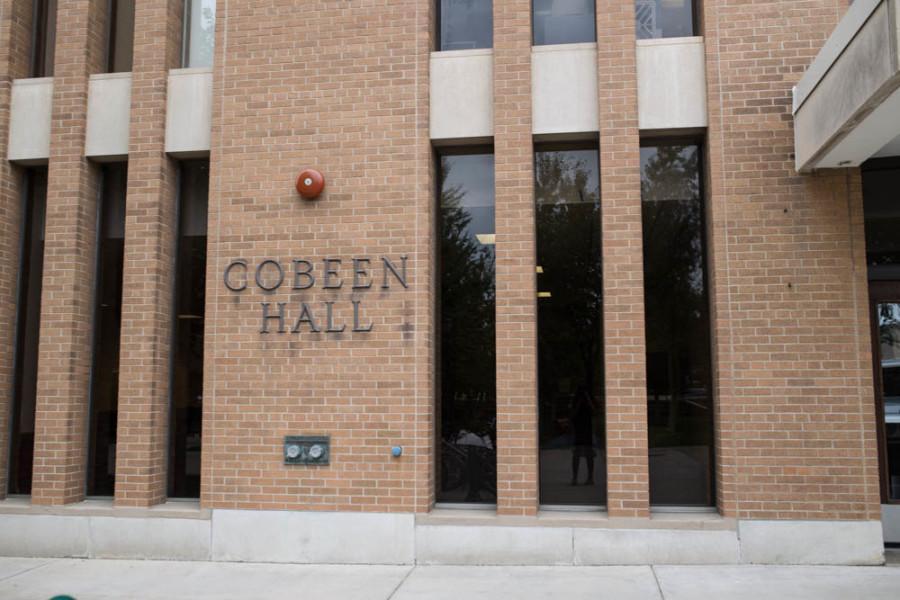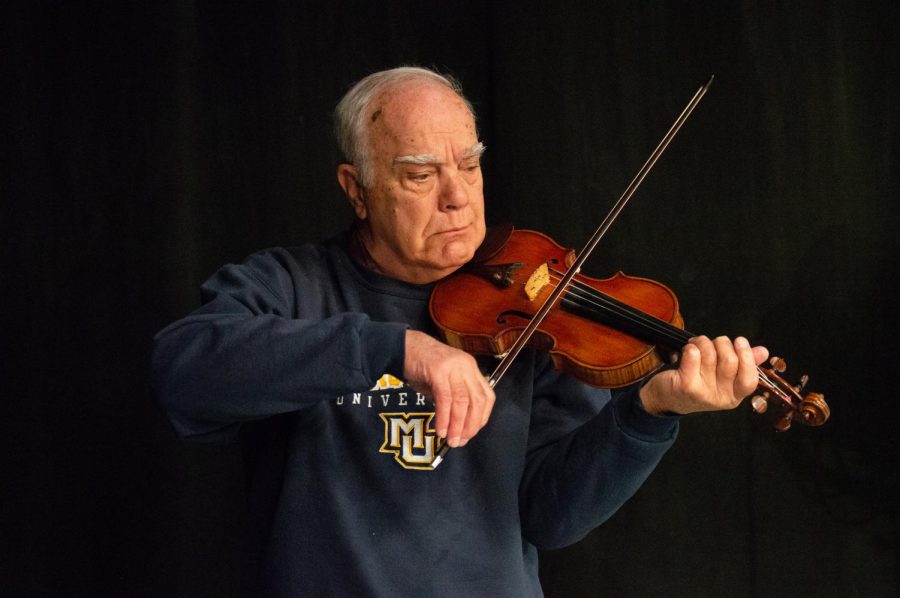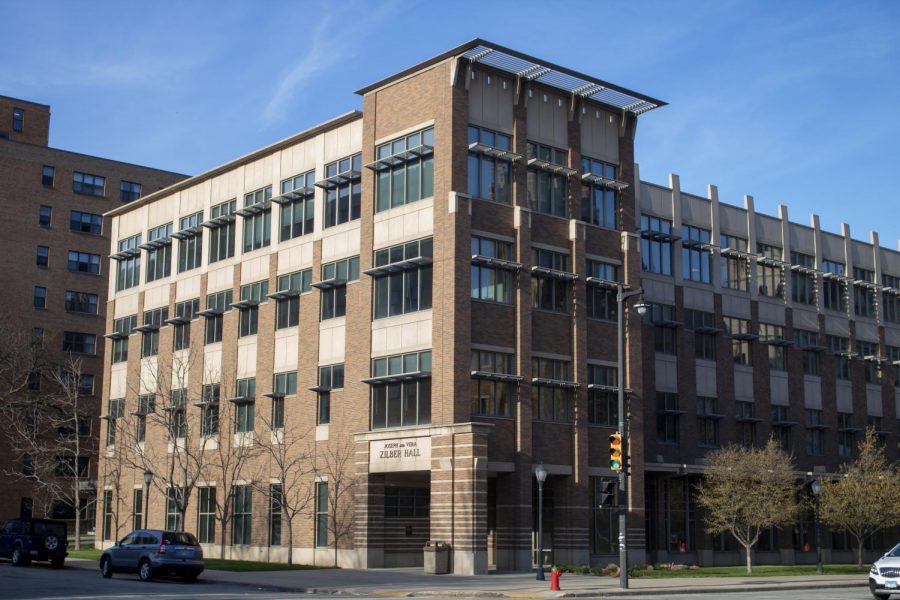Student concerns over the visitation policy caused members of Marquette University Student Government to begin looking into ways to work with the university in changing the policy.
Dan Brophy, legislative vice president of MUSG, is working with other members to modify the policy, but not eliminate it entirely.
“I don’t think the policy is up to date at Marquette with what the students want and what they need,” Brophy said. “And I think the point to keep in mind is these policies should be structured to make sure that students are happy, healthy and successful academically.”
When 2 a.m. comes around on a Saturday night, students scramble down to the lobbies of their residence halls to check their guests out for the night.
If a student has a non-resident in his or her room after this time and they did not register for overnight check-in prior to 10 p.m., they could face violation of the student conduct code, according to the Office of Resident Life website.
Students cannot check in someone of the opposite gender overnight.
“Any student found responsible for a violation of the visitation policy is subject to revocation of visitation privileges and other sanctions outlined in Marquette’s student conduct code,” the website said.
Anna Sanders, a sophomore in the College of Arts & Sciences, said she believes the policy is old-fashioned.
“It assumes that everyone is heterosexual,” Sanders said. “If someone was a lesbian, her girlfriend could stay over no problem. And it doesn’t take gender neutrality or non-conformity into account.”
Alex Kulp, a freshman in the College of Arts & Sciences, said he dislikes the policy due to its inconsistency across genders.
“If the policy applies only to people that are of different genders, you wonder what’s behind the policy,” Kulp said. “If it applied to all people — no matter what you can’t get into a dorm that’s not yours after 2 a.m.— fine, that might make sense. But if you apply it to certain people but not others, you have to wonder what’s the intention behind that, and is it right?”
This gender inconsistency becomes more complex when you consider the way it affects LGBTQ students on campus, MUSG President Meredith Gillespie said.
“The gender issue also brings up the idea that there may be students in residence life who are non-gender conforming or who are LGBTQ+ and feel as though those rules aren’t received the same way by that community as by students who are heterosexual or gender conforming,” Gillespie said.
Kulp said he knows many students in co-ed residence halls who simply get around this rule by having a friend of the opposite sex who lives in the building check in a guest for them. Then, the guest stays with the resident of their choosing.
Brophy said being able to get around the rule easily is not the only way in which the rule does not work well in practice.
“I think it’s ineffective because I think it puts a big burden on the RAs sometimes to do a lot of work that they might not want to do and be more penalizing to their residents when they don’t want to be,” Brophy said.
Additionally, since members of the opposite sex must leave the residence hall at 1 a.m. on weekdays and 2 a.m. on weekends, Valerie Del Campo, executive vice president of MUSG, said this could potentially present a safety concern.
“Especially by the time 1 a.m. or 2 a.m. comes around, then you just kind of get kicked out of the dorm because you’re not able to stay with your friends because of the whole visitation policy,” Del Campo said. “And some people aren’t comfortable taking a LIMO either, so they just walk. Because LIMOs take a while just to come to the dorm and pick you up, so some people just choose to walk home.”
Some other Catholic and Jesuit universities have created modified visitation rules. At Seattle University, students have access to gender-neutral housing. At Loyola University Chicago, sophomores are allowed to have guests of any gender stay overnight as long as they are checked in. However, other Jesuit universities, such as Xavier University and Saint Joseph University have policies similar to Marquette’s.
Sanders said she thought it would work fine as long as Marquette kept the limit on how many nights someone could stay. She said students could have their roommates sign off to make sure they are comfortable.
Gillespie and Brophy both said that part of MUSG’s responsibility will be to do research on other Jesuit universities’ policies.
“I think it’s been something that all Jesuit institutions have been grappling with because it obviously goes back to how students are behaving and the choices that they’re making, and within a Jesuit college, that can be somewhat difficult,” Gillespie said.
Outside of the residence halls, MUSG is looking at ways to modify housing rules, Brophy said. MUSG is starting by reviewing the current rule that students are not allowed to live with members of the opposite sex in any campus-owned apartments junior and senior year, he said.
“The reason that we want to change that policy and make it like any other apartment is because nobody is 14 at this university; everybody’s an adult,” Brophy said. “You should be able to live with whomever you want to live with. If you live in an off-campus apartment, you can live with whomever you want to live with. So, the university doing that, even if it’s in some attempt to preserve some Catholic, Jesuit tradition, it just doesn’t make sense. And it’s demeaning to us as adults.”
Mary Janz, executive director of Housing and Residence Life, said there are currently no plans to modify the university’s visitation policies.
Despite this, Brophy said drafting legislation to change these policies will be one of MUSG’s primary goals this year, even though it might take time. MUSG is going to use a process similar to the one they used to push for co-ed floors on campus and will include a lot of research and data from students, Brophy said.
However, since the co-ed floors are relatively new, Brophy said it might take the university a while to take further steps in this direction.
“When we have a ton of changes all at once, like the co-ed dorm policy, we like to let things sit for a while. We like to see what happened when we moved to co-ed floors and how that led to everything else,” Brophy said.
Even though these changes may not come quickly, Brophy said MUSG is prioritizing it because of overwhelming student support.
“It’s about understanding the perspective of all parties involved in this decision and that’s why it’ll take a little bit of time,” Gillespie said. “But it’s something that students are concerned about, so of course we’re going to look into it and do something about it.”












